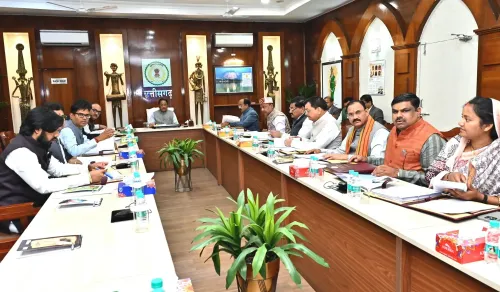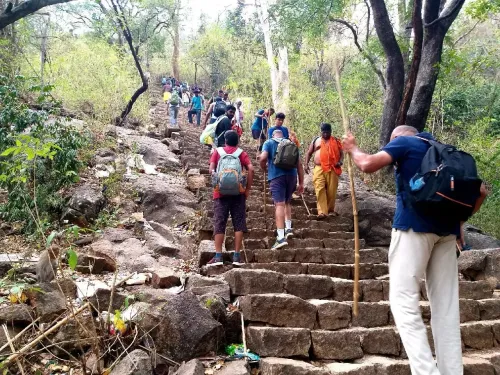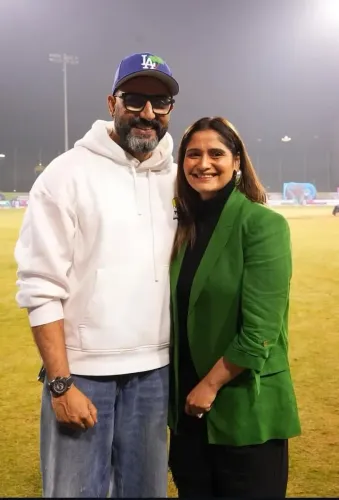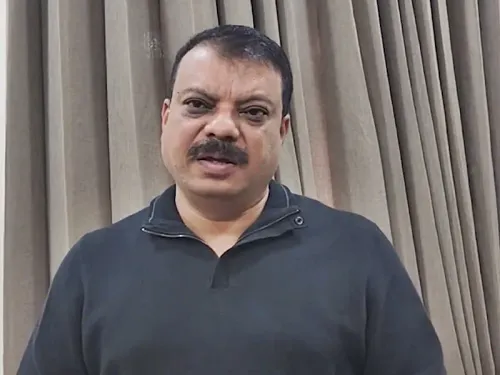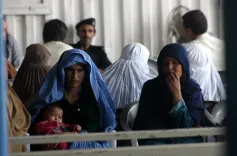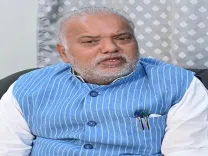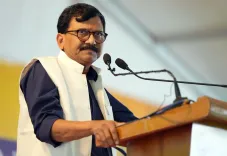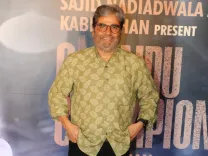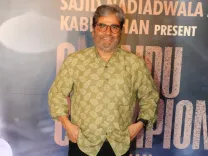Is Palestine the Center of Attention at the UNGA Session?
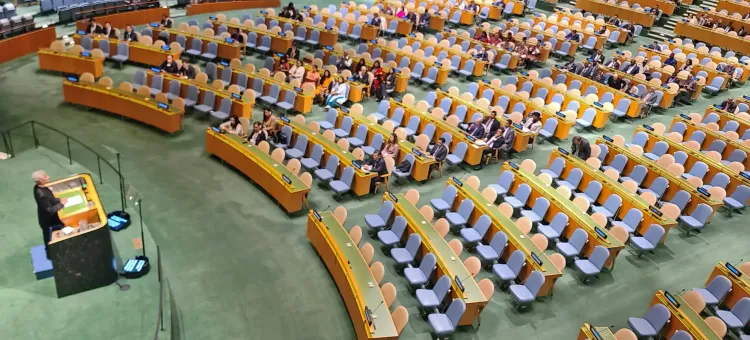
Synopsis
Key Takeaways
- Palestine is at the forefront of discussions at the UNGA.
- Significant international support for Palestine's statehood is evident.
- President Mahmoud Abbas will address the summit via video link due to visa issues.
- The UN faces internal financial challenges and a trust deficit.
- External diplomacy will play a crucial role during the assembly.
United Nations, Sept 22 (NationPress) The issue of Palestine is taking precedence at the annual high-level week of the General Assembly, where leaders including presidents, prime ministers, and monarchs present their perspectives from the striking green marble podium.
Amid the ongoing Ukraine War and various global conflicts, the UN, now in its 80th year, is grappling with significant challenges. The Palestine situation is particularly prominent, with a summit on its statehood scheduled for Monday, just before the high-level meeting commencing on Tuesday.
On Sunday, Britain, a permanent member of the Security Council, along with other Western nations, declared their recognition of Palestine's statehood ahead of the summit.
Another permanent member, France, which is facilitating the meeting in collaboration with Saudi Arabia, has indicated it will announce its recognition on Monday, joining 152 of the 193 UN members, including India.
However, Palestinian President Mahmoud Abbas will not be attending.
The US denied him a visa to enter New York for the summit, prompting the Assembly to vote on Friday to allow him to address the gathering via remote video link.
The US and Israel, along with three other nations, opposed this, while 145 countries voted in favor and six abstained.
This vote indicates a strong wave of support for Palestine, which faces a critical threat from Israel's actions in Gaza, where approximately 75,000 individuals, primarily civilians, have lost their lives. Additionally, Prime Minister Benjamin Netanyahu has announced plans to expand Jewish settlements in the West Bank.
The substantial support for recognizing Palestine could portray the UN as addressing a long-standing issue, but it is likely to remain symbolic, as the US is expected to veto its membership, and Netanyahu's stance remains unchanged.
Beyond this headline-making event, other urgent matters are at play, including the future of the UN itself, which is facing a financial crisis, exacerbated by former President Donald Trump's threats to cut funding, coupled with a growing disenchantment with the deeply divided UN. A recent poll indicated that only 58 percent of those surveyed globally expressed trust in the organization.
Secretary-General Antonio Guterres had ambitious plans for world leaders to engage with his UN80 initiative through a presentation titled 'Shifting Paradigms: United to Deliver', aimed at streamlining the UN's operations to enhance efficiency and financial viability by focusing on three core areas: peace and security, sustainable development, and human rights.
This year, the theme of the high-level session is 'Better together: 80 years and more for peace, development, and human rights'. However, key global figures such as Prime Minister Narendra Modi, President Vladimir Putin of Russia, and President Xi Jinping of China will be absent.
Traditionally, Brazil is the first to address the regular high-level session, and President Luiz Inacio Lula da Silva narrowly made it due to US visa constraints affecting some members of his delegation caught in a web of global polarization.
All attention will turn to Trump, who follows him, adhering to tradition.
The US President has drastically altered the global landscape with his trade wars and power maneuvers, and the world will scrutinize his speech for insights into his future direction.
Beyond the Assembly hall, where conflicts and animosities, as well as aspirations for cooperation and humanity, will resonate, substantial diplomacy will unfold through bilateral and multilateral discussions.
These discussions carry heightened urgency as nations strategize on navigating the Trump administration's impact.
External Affairs Minister S. Jaishankar, representing India at the high-level session, began his diplomatic efforts on Sunday by meeting with Philippines Foreign Secretary Theresa Lazaro.
Following their meeting, she posted on X, reaffirming their two countries' commitment as Strategic Partners to actively enhance cooperation in political, defense, security, and maritime domains.
(Arul Louis can be reached at arul.l@ians.in)


